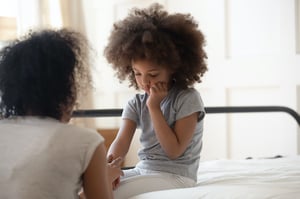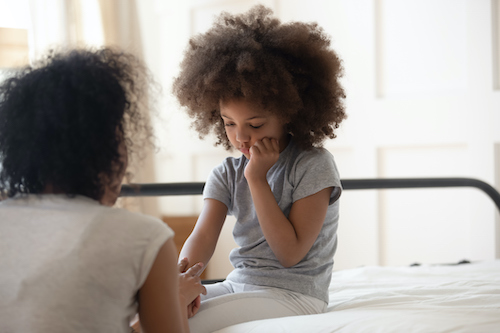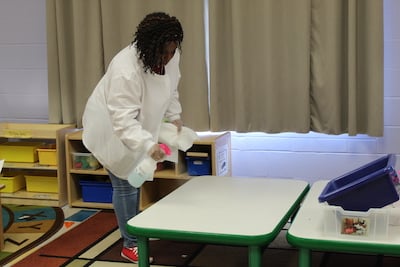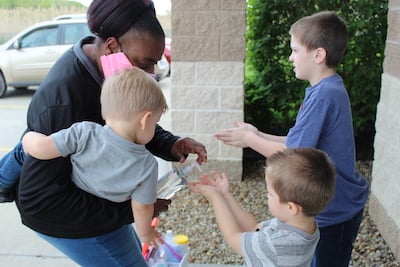 While social distancing during the pandemic is a smart move to help keep everyone physically healthy, social isolation can lead to feelings of loneliness. According to the Mayo Clinic, this can be especially hard for children. Reasons why can include the following:
While social distancing during the pandemic is a smart move to help keep everyone physically healthy, social isolation can lead to feelings of loneliness. According to the Mayo Clinic, this can be especially hard for children. Reasons why can include the following:
- They can have a harder time than adults when it comes to expressing feelings.
- They can’t simply go visit friends as a way to cope with those feelings.
- “Friendships with other children can give kids crucial support, build a sense of belonging and help them to develop personal identities”—and now those friendships must be enjoyed in different ways.
How do you help your child cope with feeling lonely as a result of this situation?
The Mayo Clinic suggests that you help them find other ways to communicate with their friends, perhaps through a regularly scheduled video call. Older children can text and play age-appropriate online games with their friends. They can also send letters — and might experience some old-fashioned joy when receiving mail in return.
Check in with your child more often and allow opportunities for them to express their feelings. Find family activities that you can enjoy together, such as a weekly board game night or movie night. You can also get books for your children, including ones that focus on loneliness.
If you’re concerned that your child is struggling to express how they feel, the National Health System in the United Kingdom suggests you observe playtime. If your child appears to have their toys fight one another, for example, you might note that out loud to see how your child responds. Even if you don’t get an immediate response, this can open the door to more open conversations about feelings.
Joe DiMaggio Children’s Hospital offers additional tips, including to give your child a sense of control. Let them choose what movie to watch, book to read, or game you play. Allow them to choose from several options for dinner, as well. Although each of these may sound small, overall, they can help to give your child that much-needed sense of control.
At the same time, it’s important to continue to maintain structure and routine. Even if it isn’t exactly the same one that your family had before COVID-19, this can help your child cope by generally knowing what to expect each day.
Also, encourage exercise. Children and adults alike may be spending more time on screens, whether computers for learning or smartphones to connect with others, so it’s especially important to keep your child active and moving around.
Another tip from the children’s hospital to reduce loneliness is to find creative ways to celebrate occasions. For your child’s birthday, you could reach out to the parents of their friends and ask for a drive-by party. For more specifics, IndyWithKids.com shares 26 fun ways to celebrate during COVID-19.
For example, you could embellish both the inside of your home and the lawn with bright birthday decorations. Then, friends and family members could drive by and wave. They could park in front of your home and open windows facing your lawn to blow bubbles and hold out Happy Birthday signs. Coordinate times with everyone so your child can see who has come by to celebrate. You can also ask everyone to send their favorite pictures or videos of your child and you can put them together in a fun way to share and cherish.
Finally, be aware of your own stress levels and feelings of loneliness. When you serve as a role model during the COVID-19 pandemic, this can help your child cope.






